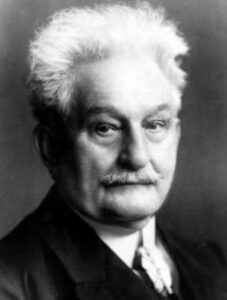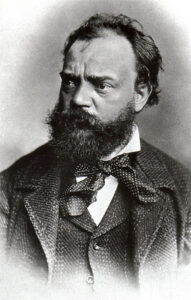
12th March 2016 at Shirley Methodist Church, Birmingham.
The programme is:
- Janáček’s Lachian Dances 1, 2, and 6
- Smetana’s Tábor and Blaník, from Má Vlast
- Dvořák’s Fifth Symphony
Conductor: Lee Differ
The concert is at the Methodist Church in Shirley, where we have performed before. The Methodist Church is on the main road, but car parking is to the back.
Programme Notes

Janáček’s Lachian dances nos 1, 2, and 6
The Lachian Dances was the first mature work by the Czech composer Leoš Janáček. They feature folk songs from the Wallachia region, a mountainous region in the far east of Moravia.

Smetana’s Tábor and Blaník, from Má Vlast
Má Vlast (“my homeland” or “motherland”) is a set of six symphonic poems composed between 1874 and 1879 by the Czech composer Bedřich Smetana. They are sometimes performed individually, and sometimes as a set of six. Since 1952, the Prague Spring festival has opened on 12 May — the anniversary of the death of Bedřich Smetana — with the full cycle. Thus Má Vlast is in some way the Czech equivalent of the first night at the proms. The two symphonic poems to be performed by SBS on the 12th of March are thematically linked, making a particularly fine pair, and are the final two movements of the set, bringing the whole cycle to a rousing conclusion.
Each movement in Má Vlast depicts some aspect of the coutryside, history or legends of Bohemia.
Tábor is a city in the south of Bohemia, founded by the Hussites and serving as their centre during the Hussite Wars. The tone poem borrows from the 15th century Hussite song “Ktož jsú boží bojovníci” (“Ye Who Are Warriors of God”).
Blaník is the mountain in which (according to legend) the army of knights of St Wenceslas sleep, waiting to save the country in its gravest hour. The tone poem starts as Tábor ends, with a repetition of the opening motto that was previously left unresolved. The Hussite hymn is used again, dwelling on the line, “so that finally with Him you will always be victorious”, a reference to the rise of the Czech state.

Dvořák’s Fifth Symphony in F major
Composed in 1875, Dvořák’s F major symphony is a sunny work in largely pastoral style, and deserves to be much better known than it is. There are four movements.
- Allegro ma non troppo
- Andante con moto
- Andante con moto, quasi l’istesso tempo – Allegro scherzando
- Allegro molto
